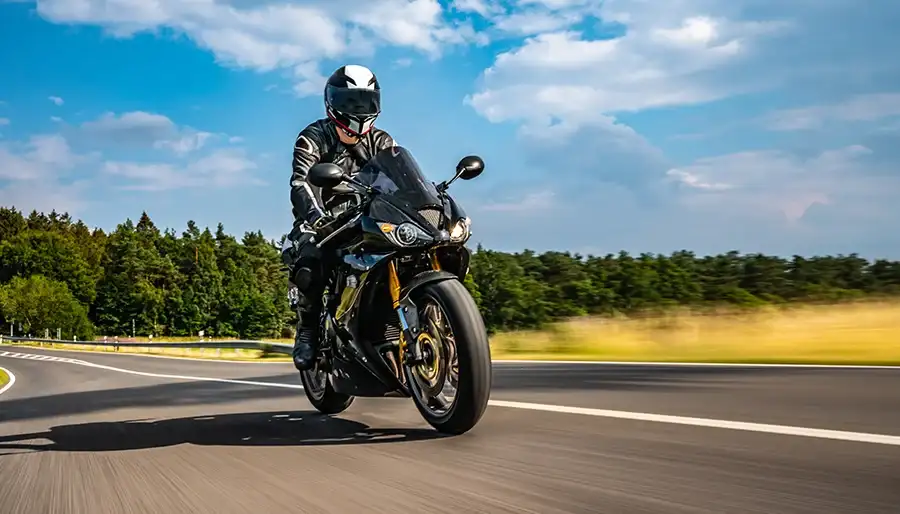
Riding a bike brings a sense of freedom and excitement, but becoming a good bike rider goes beyond speed. It’s about reaching your destination comfortably and safely, ensuring both you and your co-rider feel at ease during the journey. A good rider maintains control, reduces fatigue, and makes the ride smooth and enjoyable for everyone involved. This requires not only mastering basic riding skills but also developing an awareness of road conditions, proper gear usage, and practising safe riding habits. With patience and practice, anyone can improve their skills and become a confident, responsible bike rider. In this article, you will explore in detail how to become a better bike rider with useful tips.
Key Highlights
- Being a good bike rider means enjoying the ride while ensuring a safe and comfortable journey for yourself and your passengers.
- Master essential riding skills and adhere to safety practices to ensure a safe, confident, and risk-free ride.
- Embrace qualities such as patience, determination, compassion, and stress management to handle various riding situations effectively.
- Regularly practice, seek feedback, and stay updated on bike maintenance and riding techniques to continuously improve and become a better bike rider.
How to Become a Better Rider?
To become a good bike rider, certain skills and habits are essential. Below are some major factors, along with useful tips to improve your riding ability:
Balance and Control
One of the basic attributes of a good bike rider is the ability to maintain balance and control. Whether you're navigating turns, riding at slow speeds, or dealing with rough terrain, keeping your bike steady is crucial. Tips for improving balance include practising in open spaces and getting used to controlling the bike in different conditions.
Proper Posture
Good posture is important for both comfort and control while riding. Sitting upright with a firm grip on the handlebars allows you to react quickly and stay balanced. Tips for posture include keeping your arms relaxed and your back straight, as this reduces fatigue and improves control.
Road Awareness
A good bike rider stays alert to traffic, pedestrians, and obstacles on the road. Being aware of your surroundings helps you anticipate potential dangers and adjust accordingly. Tips for road awareness include constantly scanning your environment and maintaining a safe distance from other vehicles.
Also Read -
Know the claim process of third-party insurance
Braking Technique
Knowing when and how to brake is vital for safe riding. Sudden or harsh braking can cause loss of control. Tips for braking include applying both front and rear brakes evenly and slowing down before turns.
Smooth Cornering
Cornering smoothly requires good judgment and proper technique. Leaning into turns and maintaining a consistent speed are key. Tips for cornering include practising in low-traffic areas and adjusting your speed based on the sharpness of the turn.
Safety Gear
Wearing the right safety gear, like a helmet, gloves, and protective clothing, is a must. Tips for safety gear include investing in high-quality equipment that fits well and enhances both comfort and protection.
Also Read -
Know why a multi-year two-wheeler policy can be the right choice for your bike
Legal Compliance and Licensing
A crucial attribute of being a good bike rider is adhering to legal requirements, such as obtaining a valid learner’s permit or licence before riding. Ensuring you meet the minimum age qualification and understanding road rules is essential for safe and lawful riding. Tips for legal compliance include regularly checking the regulations in your area and always carrying your permit or licence while riding.
Insurance Coverage
A responsible bike rider ensures their bike is properly insured, as required by law. Tips for insurance include opting for
third-party bike insurance, or comprehensive coverage, staying protected against accidents, and regularly renewing the policy for uninterrupted benefits.
Also Read -
Find out how to convert a third-party coverage to a comprehensive one
By following these bike rider tips and focusing on developing these attributes, you can become a skilled, confident, and safe rider. Regular practice and a commitment to safety are key to mastering these skills.
Key Qualities of a Good Biker
Here are the key traits of a good biker:
Patience
Helps bikers stay calm and make informed decisions during traffic or emergencies.
Persistence
Encourages riders to learn from mistakes and continuously improve their riding skills by following road rules.
Compassion
Enables riders to thoughtfully respond to accidents or emergencies, ensuring careful and considerate decision-making.
Eagerness to Learn
Keeps bikers informed and adaptable, helping them navigate road conditions with confidence.
Stress Management
Allows bikers to stay focused on their journey, avoiding stress by ignoring reckless drivers and maintaining calm throughout the ride.
Using Biker Tips For Optimal Riding
Becoming a good bike rider involves mastering essential skills such as balance, control, and road awareness, along with qualities like patience, determination, and compassion. Consistent practice, adherence to safety guidelines, and a willingness to learn are key to improving your riding abilities and ensuring a safe and enjoyable journey.
FAQs
Q1. What are essential tips for improving my riding skills?
Essential tips include practising balance and control, maintaining proper posture, and developing road awareness to enhance your overall riding skills.
Q2. How can I use the tips to become a safer rider?
Safety tips include wearing proper gear, following traffic rules, and regularly checking your bike's condition to reduce risks on the road.
Q3. What are some effective strategies to become a better rider?
Effective strategies include consistent practice, learning from experienced riders, and seeking feedback to refine your skills and improve your riding technique.
Q4. How do biker tips help with managing stress while riding?
Effective tips for managing stress involve staying focused on your riding, avoiding aggressive drivers, and maintaining a calm demeanour to ensure a more relaxed ride.
Q5. Which documents should I carry when riding a motorcycle?
When riding a motorcycle, you should carry essential documents including the bike’s Registration Certificate, Pollution Under Control Certificate, and insurance policy, along with a valid driving licence.